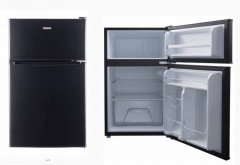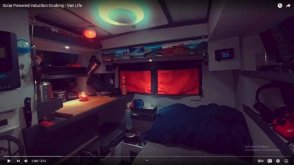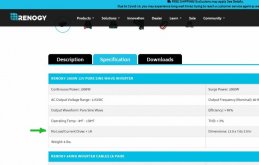Most likely, running the ac frige requires running the inverter...I was about to buy one of those Alpicool DC refrigerators but then I went to the Alpicool website and actually tried their email addresses and phone numbers...ALL WERE BOGUS and out of service.
Next I looked at mid range DC refrigerators. They started at $500 and went up from there.
I ended up buying a 1.7 cubic foot Galanz AC compressor fridge for $80 (brand new) from Walmart.
According to my Jackery 500, it uses 44watts when the compressor is running and 3 watts when in idle.
Overnight (10 hours) it uses 300 watt hours. It doesn't even deplete my Jackery 500 overnight.
During the day it runs fine on one, 100watt solar panel.
I'm not sure why so many people are having bad experiences with AC compressor refrigerators ?
For me I wouldn't even consider an Alpicool or ANY DC refrigerator. Solar panels and inverters are so cheap and
the Walmart mini AC refrigerators are so energy efficient it just makes sense.
HOWEVER..if I did decide to go DC...I would buy a DC compressor off of ebay or AliExpress and just change out the compressor
myself before I would invest in a Chinese DC fridge.
Many inverters needed for house loads pull more watts in standby than a dc frige consumes on its own...
You used 300Wh in one day on ac.
How much would a dc frige pull?





